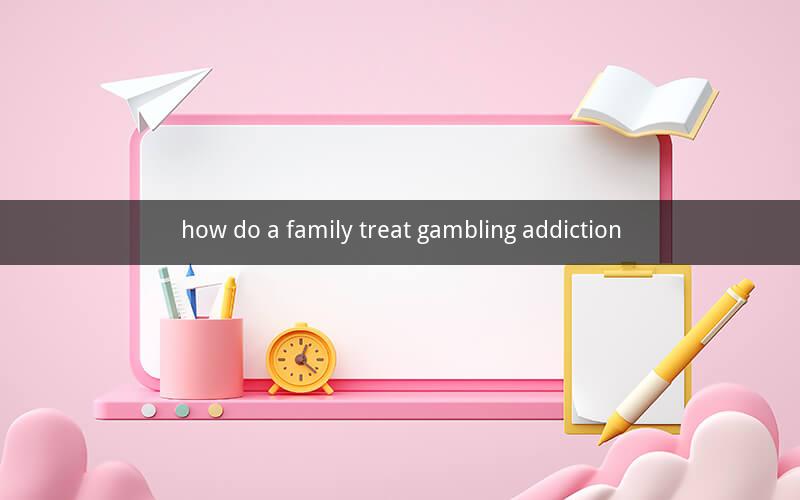
Contents
1. Understanding Gambling Addiction
2. The Impact of Gambling Addiction on Families
3. Recognizing the Signs of Gambling Addiction in a Family Member
4. Communication Strategies for Families Dealing with Gambling Addiction
5. Seeking Professional Help for Gambling Addiction
6. Support Groups and Resources for Families
7. Building a Supportive Environment at Home
8. Financial Management and Recovery
9. Legal and Ethical Considerations
10. Long-Term Recovery and Prevention
1. Understanding Gambling Addiction
Gambling addiction, also known as compulsive gambling, is a behavioral disorder characterized by an inability to control the urge to gamble despite harmful consequences. It affects individuals of all ages, backgrounds, and socioeconomic statuses. Understanding the nature of gambling addiction is crucial for families to effectively address and treat this problem.
2. The Impact of Gambling Addiction on Families
The impact of gambling addiction on families can be profound and far-reaching. Financial strain, emotional turmoil, and strained relationships are common consequences. Families may experience stress, anxiety, and depression as they try to cope with the addiction.
3. Recognizing the Signs of Gambling Addiction in a Family Member
Identifying the signs of gambling addiction is the first step in addressing the issue. These may include secretive behavior, financial difficulties, neglect of responsibilities, increased time spent on gambling activities, and lying about gambling habits.
4. Communication Strategies for Families Dealing with Gambling Addiction
Effective communication is key to supporting a family member with gambling addiction. Families should approach the conversation with empathy, avoid confrontation, and express their concerns clearly. Active listening and open dialogue can help foster understanding and support.
5. Seeking Professional Help for Gambling Addiction
Professional help is essential for treating gambling addiction. Therapists, counselors, and support groups can provide guidance and support. Treatment may include cognitive-behavioral therapy, financial counseling, and medication for co-occurring mental health disorders.
6. Support Groups and Resources for Families
Support groups, such as Gam-Anon and Al-Anon, offer a safe space for families to share their experiences and receive support. These groups provide valuable resources and connections to professionals who specialize in gambling addiction.
7. Building a Supportive Environment at Home
Creating a supportive environment at home is crucial for the recovery process. Families should encourage open communication, offer help with daily tasks, and avoid enabling behaviors. Setting boundaries and establishing routines can also contribute to a stable home environment.
8. Financial Management and Recovery
Managing the financial aspects of gambling addiction is a critical component of recovery. Families may need to seek financial counseling to address debt and develop a budget. Learning to manage finances responsibly can prevent relapse and promote long-term recovery.
9. Legal and Ethical Considerations
Gambling addiction can have legal and ethical implications. Families should be aware of the laws and regulations regarding gambling in their area and seek legal advice if necessary. Ethical considerations, such as maintaining confidentiality and respecting the rights of all family members, are also important.
10. Long-Term Recovery and Prevention
Long-term recovery from gambling addiction requires ongoing effort and commitment. Families should continue to support their loved one and maintain open communication. Preventing relapse involves identifying triggers and developing strategies to cope with them.
Questions and Answers
1. Q: What are the most common signs of gambling addiction in a family member?
A: Secretive behavior, financial difficulties, neglect of responsibilities, increased time spent on gambling activities, and lying about gambling habits are common signs.
2. Q: How can families support a loved one with gambling addiction?
A: Families can support their loved one by offering empathy, open communication, seeking professional help, and creating a supportive environment at home.
3. Q: Are there any legal consequences of gambling addiction?
A: Legal consequences can vary depending on the severity of the addiction and the laws in the individual's jurisdiction. It's important for families to seek legal advice if necessary.
4. Q: Can gambling addiction be treated?
A: Yes, gambling addiction can be treated through various methods, including therapy, support groups, and financial counseling.
5. Q: How can families help their loved one manage financial difficulties caused by gambling addiction?
A: Families can help by seeking financial counseling, developing a budget, and offering support in managing debt.
6. Q: Are there any support groups specifically for families of individuals with gambling addiction?
A: Yes, Gam-Anon and Al-Anon are support groups specifically for families affected by gambling addiction.
7. Q: Can stress or anxiety contribute to gambling addiction?
A: Yes, stress and anxiety can be triggers for gambling addiction, as individuals may turn to gambling as a form of escape or relief.
8. Q: How can families prevent relapse in their loved one with gambling addiction?
A: Families can prevent relapse by identifying triggers, developing coping strategies, and maintaining ongoing support.
9. Q: Can medication be used to treat gambling addiction?
A: While there is no specific medication for gambling addiction, medication may be used to treat co-occurring mental health disorders that contribute to the addiction.
10. Q: What is the most important thing families can do to support their loved one with gambling addiction?
A: The most important thing families can do is to offer unconditional support, empathy, and understanding throughout the recovery process.